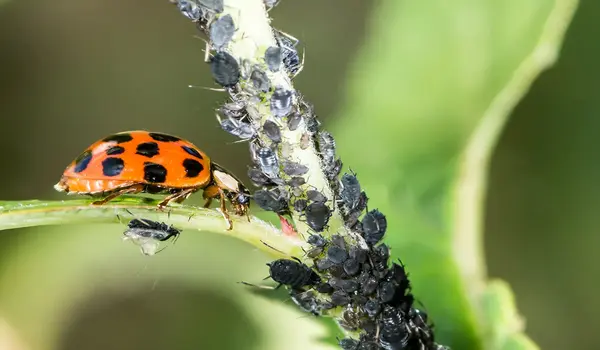In the world of agriculture, pest control is crucial for maintaining healthy crops and achieving high yields. Traditional methods often rely on synthetic chemicals that can have adverse effects on the environment and human health. As a response to these concerns, organic pest control methods have gained popularity. This blog explores why using organic pest control is essential in modern farming and how it benefits both the environment and agricultural practices. One of the main reasons for adopting organic pest control is to reduce chemical residues on crops. Synthetic pesticides can leave harmful residues that may end up on the food we consume. Organic pest control methods, such as using natural predators or plant-based repellents, minimize these residues and help ensure that food is safer for consumption. For instance, using bio-pesticides, like Whitefly Controller Formulation from Bulkagrochem, can help manage pests without leaving harmful residues. Organic pest control methods focus on preserving beneficial insects that play a vital role in the ecosystem. These beneficial insects, such as ladybugs and lacewings, help control pest populations naturally by preying on harmful pests. Unlike synthetic pesticides, which can indiscriminately kill all insects, organic methods target specific pests while allowing beneficial insects to thrive. For example, using Bio Thrips-Mites Controller can effectively manage specific pests while safeguarding beneficial insects. Organic pest control practices contribute to better soil health. Many synthetic pesticides can negatively affect soil microorganisms that are essential for nutrient cycling and soil fertility. Organic methods, including the use of natural pest control agents and organic compost, support a balanced soil ecosystem. Bulkagrochem’s Trichoderma Bio-Pesticides Powder Formulation (Water Soluble), for instance, helps manage soil-borne pests while promoting healthy soil microbial activity. Organic pest control aligns with the principles of sustainable farming by minimizing environmental impact. It reduces the reliance on synthetic chemicals and promotes the use of natural resources. Practices such as crop rotation, companion planting, and biological control contribute to long-term sustainability and resource conservation. By integrating organic pest control, farmers can maintain a balanced ecosystem and ensure the long-term viability of their farming practices. Synthetic pesticides are associated with various health risks, including respiratory issues, skin problems, and even long-term diseases. Organic pest control methods are designed to be safer for farmers and farm workers. By using natural or organic pest control solutions, such as Bio-Larvicide from Bulkagrochem, farmers can minimize their exposure to harmful chemicals and protect their health. Organic pest control methods encourage biodiversity by creating a more balanced and resilient ecosystem. Diverse ecosystems are better able to withstand pest outbreaks and environmental stresses. Organic practices, such as planting cover crops and using organic mulches, support a wide range of organisms that contribute to a healthy agricultural environment. This biodiversity helps manage pest populations naturally and supports overall farm health. Crops grown using organic pest control methods often have higher quality and better flavor. The absence of synthetic chemicals and the focus on natural pest management contribute to healthier plants and improved crop quality. Organic methods, like using Strong Larvicide Bioproduct for targeted pest control, help maintain the integrity of the crops and ensure that they meet high-quality standards. With increasing consumer awareness of food safety and environmental issues, there is a growing demand for organically grown produce. Using organic pest control methods allows farmers to meet this demand and market their products as organic. By adopting organic practices, farmers can appeal to a broader customer base and potentially achieve better market prices for their crops. Organic pest control is an essential practice in modern farming for several compelling reasons. It reduces chemical residues, protects beneficial insects, enhances soil health, supports sustainable farming, and reduces health risks for farmers. By promoting biodiversity and improving crop quality, organic pest control methods align with consumer preferences for safer and more environmentally friendly produce. Incorporating organic pest control solutions, such as Bulkagrochem’s Whitefly Controller Formulation and Bio-Larvicide, helps farmers manage pests effectively while maintaining a healthy and sustainable farming system. As the agriculture industry continues to evolve, organic pest control represents a forward-thinking approach that benefits both the environment and the future of farming.1. Reducing Chemical Residues
2. Protecting Beneficial Insects
3. Enhancing Soil Health
4. Supporting Sustainable Farming
5. Reducing Health Risks
6. Promoting Biodiversity
7. Enhancing Crop Quality
8. Meeting Consumer Demands
Conclusion
Bulkagrochem
Submit your contact number & get exciting offer
Bulkagrochem.com
Bulk Purchase & Get Bulk Discount
Share your number to receive customized bulk pricing, availability updates, and exclusive offers directly via WhatsApp.

Recommended Products



